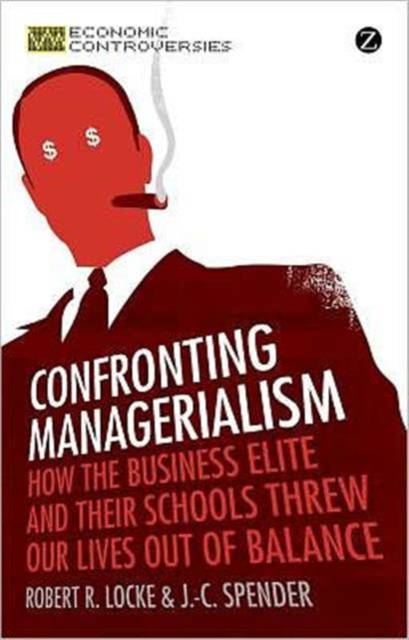
- Afhalen na 1 uur in een winkel met voorraad
- Gratis thuislevering in België vanaf € 30
- Ruim aanbod met 7 miljoen producten
- Afhalen na 1 uur in een winkel met voorraad
- Gratis thuislevering in België vanaf € 30
- Ruim aanbod met 7 miljoen producten
Zoeken
Confronting Managerialism
How the Business Elite and Their Schools Threw Our Lives Out of Balance
Robert R Locke, J C Spender
€ 195,45
+ 390 punten
Uitvoering
Omschrijving
Confronting Managerialism offers a scathing critique of the crippling influence of neoclassical economics and modern finance on business school teaching and management practice. In doing so, Locke and Spender show how business managers who were once well-regarded as custodians of the economic engines vital to our growth and social progress now seem closer to the rapacious 'robber barons' of the 1880s. In effect, responsible management has given way to 'managerialism', whereby an elite caste of businessmen disconnected from any ethical considerations now call the shots, sending the lives of the rest of us 'out of balance'. The book traces the loss of managers' earlier social concerns, amply encouraged by management education's transformation since the 1960s, especially in the US. It also questions not only the social ethics of the US management caste but its management efficacy compared to systems of management that are highly employee participative and dependent, such as in Germany and Japan. Today's attempts to 'bolt on' ethics and social responsibility courses, the authors argue, are mere window-dressing, a public relations move that cannot get to the heart of the matter. Only fundamental reforms in civil society and business schools can really make a difference. A unique, topical and controversial look at a subject that impacts us all.
Specificaties
Betrokkenen
- Auteur(s):
- Uitgeverij:
Inhoud
- Aantal bladzijden:
- 240
- Taal:
- Engels
- Reeks:
Eigenschappen
- Productcode (EAN):
- 9781780320724
- Verschijningsdatum:
- 8/09/2011
- Uitvoering:
- Hardcover
- Formaat:
- Ongenaaid / garenloos gebonden
- Afmetingen:
- 140 mm x 218 mm
- Gewicht:
- 385 g

Alleen bij Standaard Boekhandel
+ 390 punten op je klantenkaart van Standaard Boekhandel
Beoordelingen
We publiceren alleen reviews die voldoen aan de voorwaarden voor reviews. Bekijk onze voorwaarden voor reviews.








